-
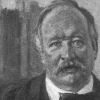 +21 +1
+21 +1Svante Arrhenius, the Man Who Foresaw Climate Change
Svante Arrhenius, awarded with the Nobel prize, discovered at the end of the 19th century that CO2 emissions caused an increase in the planet's temperature.
-
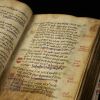 +21 +1
+21 +1Do not try this at home: Medieval medicine under the spotlight in major new project
How did our medieval ancestors use dove faeces, fox lungs, salted owl or eel grease in medical treatments? A Wellcome funded project at Cambridge University Library is about to find out.
-
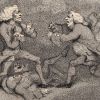 +11 +1
+11 +1Vicious Doctors and Cruel Diseases in 18th-Century Jamaica
A scientific dispute takes a violent, absurd turn.
-
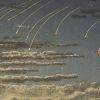 +27 +1
+27 +1From their balloons, the first aeronauts transformed our view of the world
Not so long ago, people had no idea what would happen to them – and what they would see – once they ascended into the clouds.
-
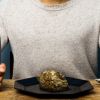 +10 +1
+10 +1The Man Who Ate Uranium
You can watch this guy Galen lick a pile of highly radioactive uranium off the palm of his hand and ignite a chunk of plutonium into a shower of flaming dust. The guy also drank reactor cooling pool water for fun and liked to go swimming in the pool to relax.
-
 +19 +1
+19 +1The Atomic-Bomb Core That Escaped World War II
Before two deadly nuclear mishaps, scientists used to risk “tickling the tail of a sleeping dragon.”
-
 +9 +1
+9 +1Top 10 Isaac Newton Inventions
Almost 300 years after his death, Sir Isaac Newton remains one of the most influential thinkers in history. What are some of his most enduring inventions?
-
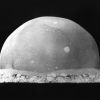 +21 +1
+21 +1The Totally Normal Town Where Everyone Worked on Weapons of Mass Destruction
A 1954 report from the birthplace of the atomic bomb wants you to know that everything is totally “normal” in Los Alamos, New Mexico.
-
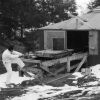 +22 +1
+22 +1Here be dragons
Reading about the various radiation hazards in the Manhattan Project's history can be spine-tingling, even with a measured view of the dangers. By Alex Wellerstein. (Nov. 20)
-
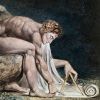 +21 +1
+21 +1The Invention of Science: A New History of the Scientific Revolution by David Wootton review – a big bang moment
The birth of science in Europe was the greatest revolution of all, argues this dazzling polemic/ By Lorraine Daston.
-
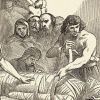 +43 +1
+43 +1The Gruesome History of Eating Corpses as Medicine
The question was not “Should you eat human flesh?” says one historian, but, “What sort of flesh should you eat?” By Maria Dolan. (2012)
Submit a link
Start a discussion




















